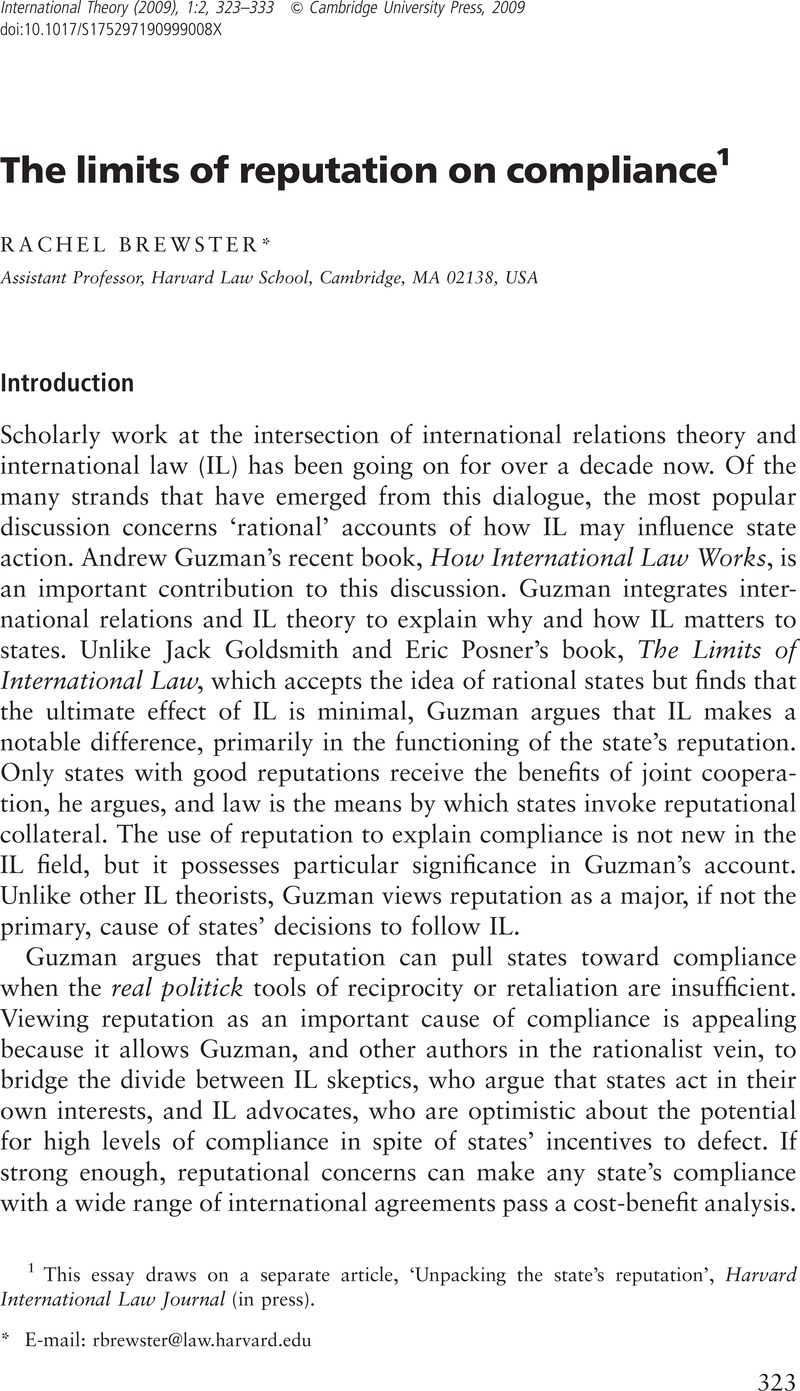Crossref Citations
This article has been cited by the following publications. This list is generated based on data provided by Crossref.
Guzman, Andrew T.
2009.
How international law works: a response to commentators.
International Theory,
Vol. 1,
Issue. 2,
p.
335.
Sylvest, Casper
2010.
Realism and international law: the challenge of John H. Herz.
International Theory,
Vol. 2,
Issue. 3,
p.
410.
Medeiros, Sabrina Evangelista
2011.
Modelos de reputação internacional e paradigmas de política externa.
Contexto Internacional,
Vol. 33,
Issue. 2,
p.
435.
Park, Jong Hee
and
Hirose, Kentaro
2011.
Does Domestic Polarization Affect the Credibility of International Commitment?.
SSRN Electronic Journal,
Abbott, Kenneth W.
and
Snidal, Duncan
2012.
Interdisciplinary Perspectives on International Law and International Relations.
p.
33.
Park, Jong Hee
and
Hirose, Kentaro
2013.
Domestic politics, reputational sanctions, and international compliance.
International Theory,
Vol. 5,
Issue. 2,
p.
300.
Meraglia, Simone
and
Picci, Lucio
2014.
International Agreements, Reputational Screening and the Long-Run Interests of the State.
SSRN Electronic Journal,
Verdier, Pierre-Hugues
and
Voeten, Erik
2015.
How Does Customary International Law Change? The Case of State Immunity.
International Studies Quarterly,
Vol. 59,
Issue. 2,
p.
209.
Hallwood, Paul
2016.
International Public Law and the Failure to Efficiently Manage Ocean Living Resources.
Marine Resource Economics,
Vol. 31,
Issue. 2,
p.
131.
Dothan, Shai
2016.
A Virtual Wall of Shame: The New Way of Imposing Reputational Sanctions on Defiant States.
SSRN Electronic Journal ,
Janusch, Holger
2018.
The Interaction Effects of Bargaining Power: The Interplay Between Veto Power, Asymmetric Interdependence, Reputation, and Audience Costs.
Negotiation Journal,
Vol. 34,
Issue. 3,
p.
219.
Brutger, Ryan
and
Kertzer, Joshua D.
2018.
A Dispositional Theory of Reputation Costs.
International Organization,
Vol. 72,
Issue. 3,
p.
693.
Furculiță, Cornelia
2021.
The WTO and the New Generation EU FTA Dispute Settlement Mechanisms.
Vol. 19,
Issue. ,
p.
163.
Furculiță, Cornelia
2021.
International Economic Dispute Settlement.
p.
442.
Nie, Mintao
2025.
Agents of Recalcitrance.
p.
13.


